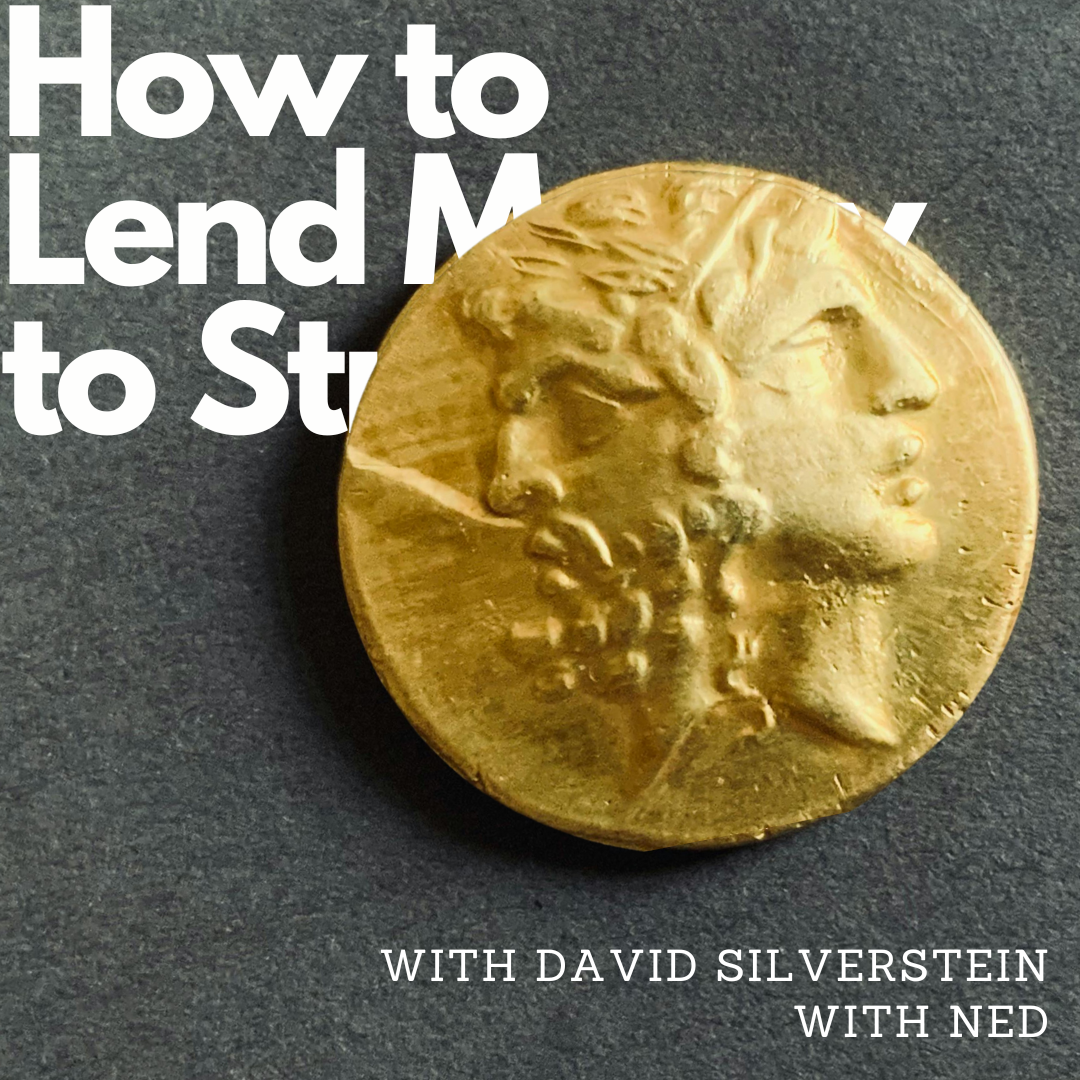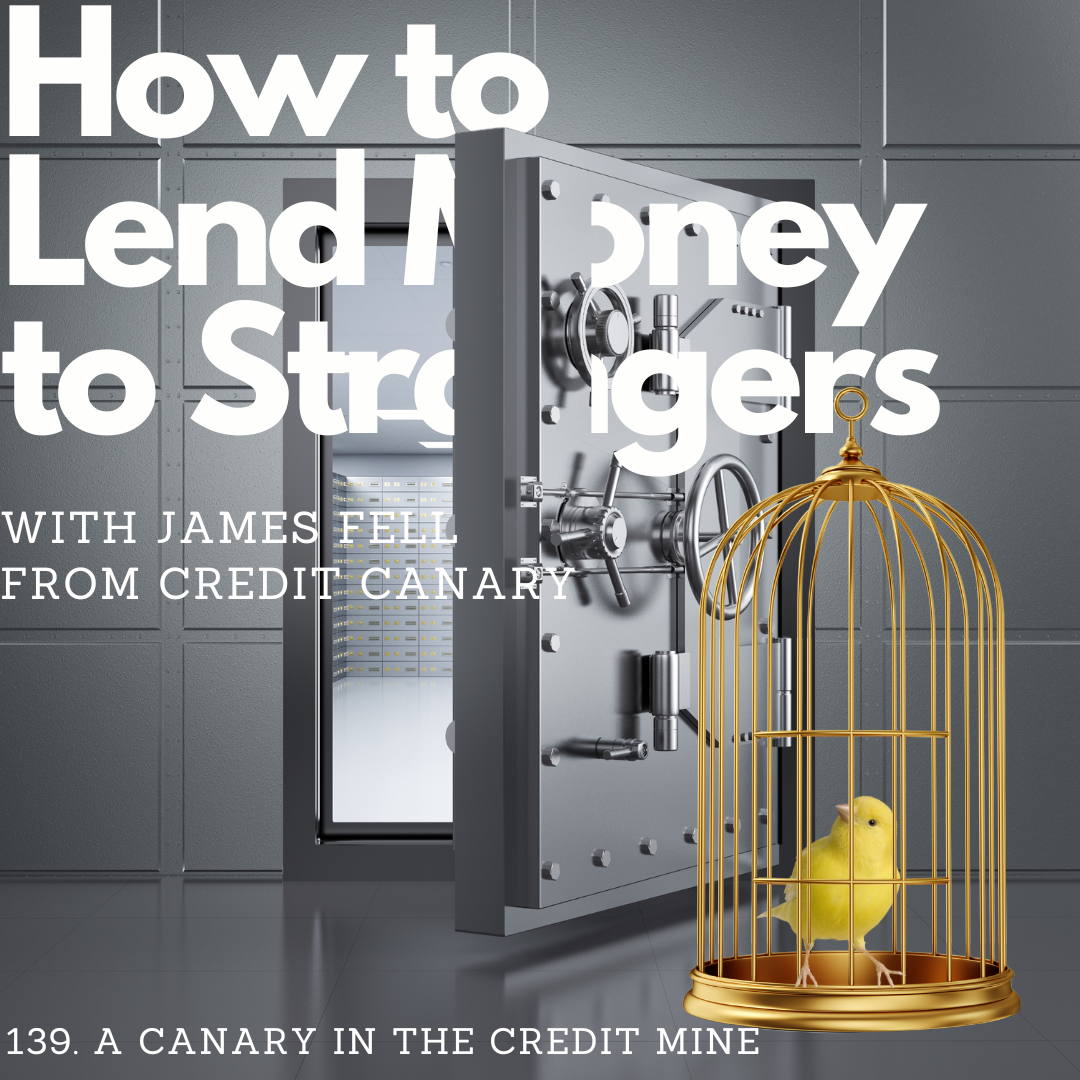How lenders are navigating volatility in 2026, with David Silverstein
Banks certainly don't lend as much as they should, but if you talk to the average banking executive, they want to. Lending is growth, at the end of the day, lending is one of the best, biggest, most efficient growth drivers.
I think my point of view on the banking sector, specifically community and regional banks, have shifted where there is this wild aspiration to build larger lending functions…. but I think they're looking for a way forward.
Real-time data for collections, with James Hill
I mean, it's, it's difficult, because you've had cost of living crisis, you know, we've had COVID, you've had these sort of huge macroeconomic conditions that have made things really tough. But the thing I always struggle with is that when we have this conversation with businesses, you know, arguably, in many ways, your software's free to them. Because ultimately, it's all about their ability to collect their ability to return. And actually their ability to, you know, bring forward working capital improve their customers position.
And the thing that always blows my mind a little bit is that what part of this doesn't make sense to a business? Because if you're a business who've lent £100 million, right, and you've got customers who are in financial difficulties, it never makes sense to write that customer off? Right? It just doesn't make sense.
Lessons from the Chinese model, with Richard Turrin
Everything I wrote in innovation, lab excellence is valid for AI deployment today, you asked a fundamental question. And it was one of the big points in my book, which is buy versus bill. And this is the same advice that I would give for an AI team today, you have to buy this technology, all but the very largest global banks like the JP Morgan's of the world, only a few of them are able to actually build their own technology.
So if you're looking at an innovation programme, or an AI programme, their job is to prove that this stuff can work. All right, their job is not to deliver ready to use code ready to use a AI that is ready for production. Because you really expect them to build their own large language model and know they prove it works.
And then you need to hire, particularly for the likes of AI, one of these larger firms is going to come in and hopefully have enough liability and insurance so that when your chat GPT style chatbot comes off the rails and give somebody the wrong answer. You can you can blame them with the losses.
A canary in the credit mine, with James Fell
And where I found that problem statement, that focus, was actually when I started working with community finance lenders, specifically, an experienced that really exposed the problem, to me that exists within consumer lending. And that is that very little is given to the customer management side of the credit lifecycle.
And I've had the opportunity to sit within the community finance lenders office, I mean, this was right on the front line. And I remember there was a lady that came in, and she had lots of children with a, she was stressed because she was in arrears. And she come into this lending office to arrange an arrangement with the lender to ensure that she could stay on track with her payments. And I just sat there observing, and she sat there and she was getting more and more stressed, as the advisor was saying, Well, can you afford this much a week? Can you afford this much a week, and having the awareness as to all the data behind the lending decision, and everything that they had about it, I just felt like, there's got to be a better way to engage this customer and use this information to help her make sounder financial choices.
That was my lightbulb moment.
Aiming when you can't see the target, with Clare McCaffery and Jacobus Eksteen
"I don't understand why I have to take credit out to get credit. Why don't you just look at my bank statement, you can see how I'm behaving?"
Well, that's great. That's exactly what we do. At Direct ID we focus on categorising transactions that have particular interest risk decision makers.
So what we were able to do is to bridge the gap from unsupervised learning, where we don't have any labels, to supervised learning, where we do have a label.
The future of South African banking is Open, with Nick Tuttelberg
It's one of the areas that we do differentiate ourselves, and it's something that we have built up over the last 10 years. So we are in over 45 countries at the moment, representing 45 countries, and what's significant about that is we've worked on obtaining various bank connections. So we've got over 13,000 bank connections over these 45 countries. And that's significant, in other words for some of the global clients that we've signed up, so when you move to a global client, and they want to use open banking, that richness of data over to three countries that don't necessarily have to start from scratch, and especially if they've partnered with a global decisioning provider decision system provider, we can then facilitate the same relationship and agreement across various countries. So that's something we worked very hard on doing.
So it's not just UK-based.
The little credit bureau that did, with Paul Randall
The mobile wallets information I see, in a way, as a parallel option to Open Banking. It's really where somebody's having their financial transactions give us an indication of their income or their ability to spend, as well as some indication of the consistency of salary over time and the income. So I think what we've seen is combining that with the credit bureau data, you know, really provides a really strong indication of risk.
And we talked about the different data sources, some of the data sources we may not be holding within the the credit bureau, but what we're trying to do is actually facilitate so we can provide decision modules where we're bringing together that data that may be held by the telco or the bank in the mobile wallet and combining that with the credit bureau data so it's easier to use to generate those decisions for the lenders.
Open banking is mainstream, with James Varga
Convenience being such a huge motivator means that we don't need in my view to educate people on what open banking is, we just need to provide the reasons the benefits, especially around convenience, that get people to connect their bank account. And as you said, it is safer sharing that data through a secure channel as a regulated business like like us than, you know, photocopying or printing out your bank statements and then sending them into the post to some unknown place.
And these are all topics that have been talked about for a long time. But it is great to see the use cases start to develop the market start to mature, our understanding of these topics really starts to develop the fact that we don't need to educate consumers on what open banking is we just need to provide them a reason to call to action that makes sense. And if we do that, they get where they need. The business gets what they need. The regulators are happy because there's more richer data to personalise and, and really provide that responsible approach to to those lending situations and, and we just get on with their life. It's exciting.
Open banking in Greece and beyond, with Dimitris Petrilis
Open banking essentially is allowing fintech companies to offer innovative products and services on top of the traditional banks. In many countries, the legislation has pushed open banking, and an example of this is the European Union where PSD2 is forcing banks to expose certain API's to fintechs that have the appropriate licence.
However, we seen this trend not only in Europe, but globally. Because of open banking, we're seeing the platformication in banking, which is similar to the one we witnessed in the lodging sector (with Airbnb), Booking.com, Expedia, etc. Consumers and businesses utilise the best products according to their needs from different banks, and they interact with them through FinTech companies that are offering a much better user experience. Some examples of fintech companies that are using open banking are companies offering account aggregation; personal and business finance management; payment initiation; buy now pay later solutions; and credit scoring applications.
Data. Data. Data. Expanding what it means to be a credit bureau, with Jon Roughley
when we are looking at new data sources, we have four acid tests that we run through.
The first is the reliability of the data - so is it from a trustworthy source? Is it compliant? Is it of good quality, all those sorts of factors. The second, as you said, is the predictive nature of the data, is it proving out or identifying the hypotheses in the insights that we expected and is doing something which existing datasets can't? The third one is about its scalability, which doesn't mean it has to be the whole population, but for the actual target audience that we're trying to benefit, does it have enough coverage? And the fourth one is, is it understandable, which I think is increasingly important for us.
And we deliberately set the bar understandable rather than explainable because they're different. My science teacher, much to his frustration, spent hours explaining the basics of physics to me, unfortunately, for me, it wasn't very understandable. But actually, that is a really that's a really important point, because it comes back to this control and transparency. If people do not understand it, then why would I trust it? So for us as organisations with new data and new insights, then we have to be able to help people understand why we're doing it and, and the inferences we're drawing.
Consumer credit in the Nordics, with Jakob Færgeman
Because I've seen a lot of fintechs out there, which had maybe a fantastic proposition, but it lacked a few elements to be really, really successful. We do see some smaller banks that have opened with a very clear digital strategy. They have been very successful to attract customers with a very strong marketing campaign, very visible in the media, and very visible in the streets, etc. What I do think in order for them to be successful, they need to make sure that the bank is not only marketing, colourful websites and apps, but they also need to make sure they integrate the risk policy, the credit risk policy.












